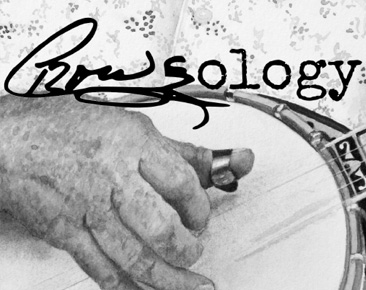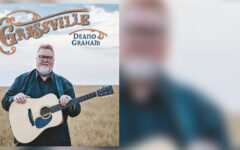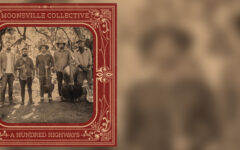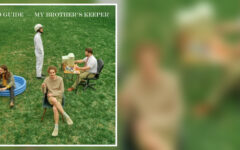
 Has bluegrass music gotten better over its somewhat brief 70 year history? I’m not talking about how the music that is categorized as bluegrass has expanded over this time, and how people may feel about that, but about the core essence of what seminal artists like Bill Monroe, Flatt & Scruggs, and The Stanley Brothers left to us and continues to be performed today.
Has bluegrass music gotten better over its somewhat brief 70 year history? I’m not talking about how the music that is categorized as bluegrass has expanded over this time, and how people may feel about that, but about the core essence of what seminal artists like Bill Monroe, Flatt & Scruggs, and The Stanley Brothers left to us and continues to be performed today.
It’s a hard question, as the term “better” is inherently subjective, and could mean different things to different people. From the standpoint of critical analysis, though, one can make objective judgements about matters of technical proficiency, virtuosity, and artistic discretion.
Based on those criteria, and the example to be found on Croweology: The Study of J.D. Crowe’s Musical Legacy by Rickey Wasson, I think we can answer with a definitive, and resounding yes! This set of “Crowe covers” by many former members of his group is a delight.
To properly analyze this record, let’s divide bluegrass history from the year 1946, when purists agree that what we now call bluegrass was present in Bill Monroe’s group (Lester Flatt, Bill Monroe, Earl Scruggs, Chubby Wise, and Howard Watts), to the 1975 release of the eponymous J.D. Crowe & The New South album on Rounder, widely considered as the beginning of modern bluegrass, and on up to the present day.
It would be nonsense to suggest that modern grassers are “better” musicians than the forebears who created the music. But much like contemporary athletes who have both better conditioning and training today, plus the huge advantage of studying and learning from those that went before, today’s bluegrass pickers reach a level of dexterity and musicianship at a young age that many early pros struggled to attain after many years in the business.
So, what does Croweology have to do with this question? It’s only been ten years longer from the release of the 0044 Rounder LP than the time from the original bluegrass band to 1975. Wouldn’t most of us agree that we can hear a progression from Monroe’s early recordings to the smoothness and accomplishment of Crowe, Rice, Skaggs, et al on 0044? In just the same way, this new Wasson CD shows how well top level, present-day pickers have internalized the lessons that The New South laid down with both 0044 and subsequent records.
I think it’s safe to say that no baritone singer in bluegrass can deliver Tony Rice-style vocals with the same confidence and refinement as Rickey Wasson. He draws on his many years playing with Crowe’s band, and his deep knowledge of J.D.’s music, to provide dead-on renditions of several songs that Rice made famous. Home Sweet Home Revisited, I’m Walkin’, and Ten Degrees And Getting Colder sound fresh and new here, without deviating from the feel or the arrangements from ’75.
Older Crowe classics like Gordon Lightfoot’s For Loving Me and You Can Have Her which came to bluegrass from doo-wop singer Roy Hamilton, get the Wasson treatment here, as do God’s Own Singer and Ramblin’ Boy from Bernie Leadon and Tom Paxton, respectively.
Dan Tyminski, who sings tenor throughout, takes the lead on East Virginia Blues and Cryin’ Holy Unto The Lord, both big numbers for Ricky Skaggs when he was with Crowe. No one needs to be told that Tyminski is among the premier vocalists in our music, something he demonstrates again here, perhaps especially in his close matching of Wasson’s lead vocals, phrase for phrase.
The breakout star here is probably Mo Pitney, who is currently hard at work establishing himself as an up-and-coming country singer, whose reproductions of a couple of Keith Whitley songs here simply sparkle. This young man has every bit of the vocal agility Whitley showed in his time with Crowe, and delivers perfect readings of She’s Gone, Gone, Gone, and You Can Share My Blanket. He also nails You Are What I Am, which Skaggs recorded on 0044.
Remarkable is the only way to describe Ron Stewart’s banjo playing on Croweology. Another New South alum, Ron probably remembers more Crowe licks than J.D. himself, and he displays that monumental vocabulary across all 13 tracks. Playing fiddle with Crowe for years has allowed Ron to not only play like his idol, but think like him as well. Banjo players will be poring over this CD for years trying to pick up what Stewart knows. Most pickers would shrink from stepping into Crowe’s shoes, but Ron plainly revels in it.
Adam Steffey also shines on mandolin, adding his super melodic playing to all these songs. Fiddle comes from Ron Stewart as well, reprising his New South role, as does bassist Harold Nixon. Steve Gulley and Don Rigsby add spot-on tenor vocals on a few tracks.
I won’t embarrass anyone by suggesting that Croweology is a “better” album than J.D. Crowe & The New South or You Can Share My Blanket, but I will say that it is every bit as enjoyable in its own way as those two classics. This is vintage, ’70s bluegrass performed at the very highest level.
At this time the album is only available from Wasson’s web site where you can hear audio samples, though it will be showing up soon in popular digital distribution channels.
If you are a fan of J.D. Crowe, you will absolutely want to add this one to your collection.







